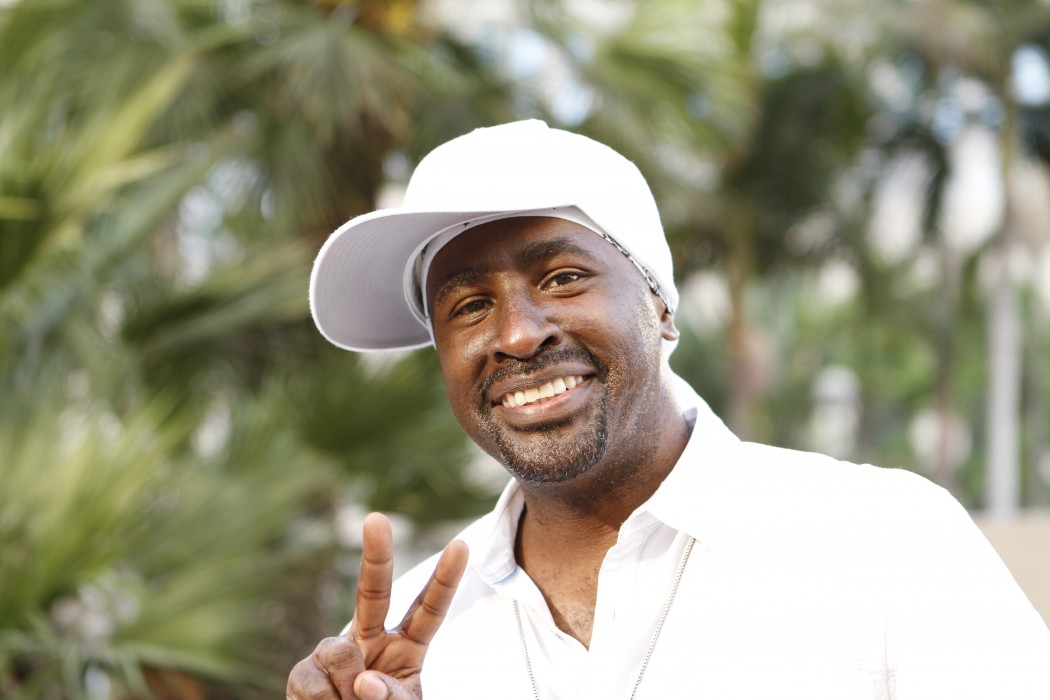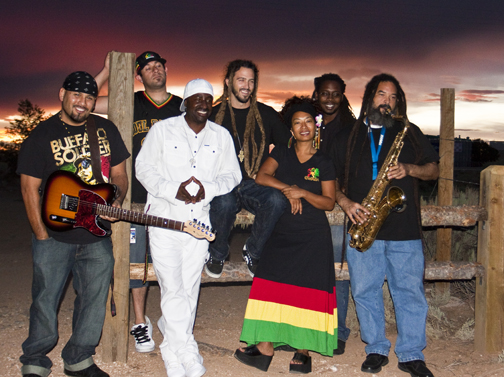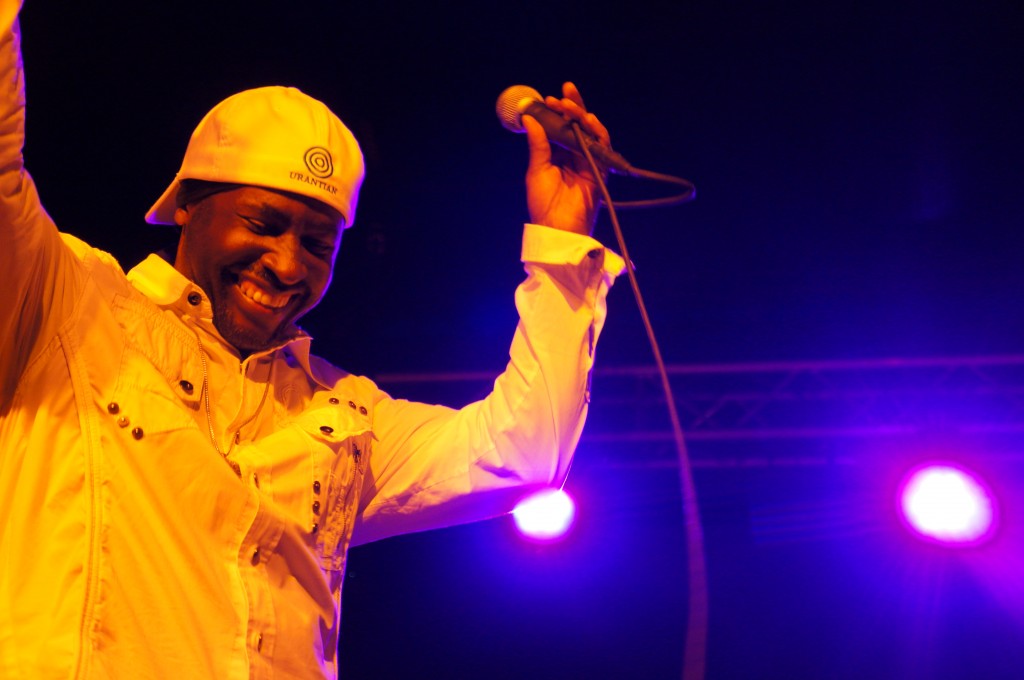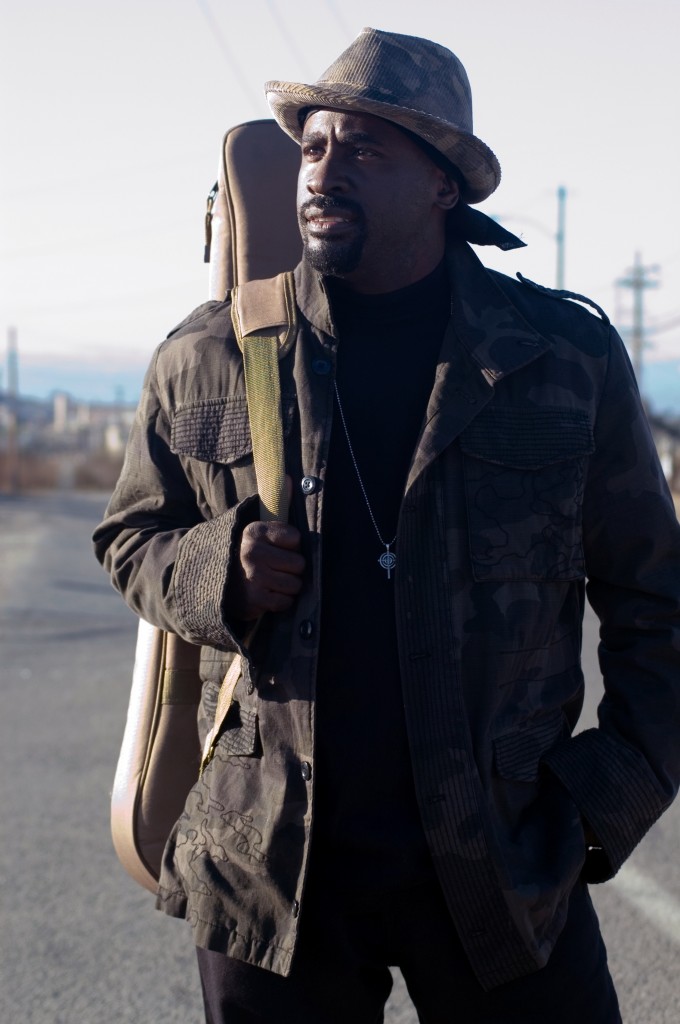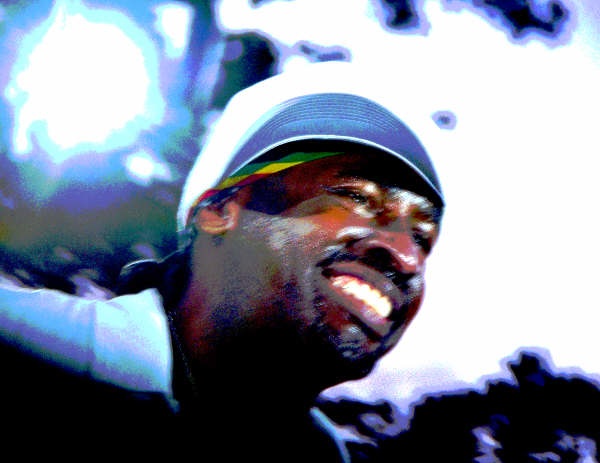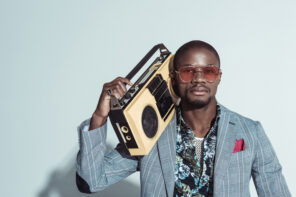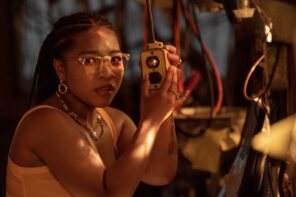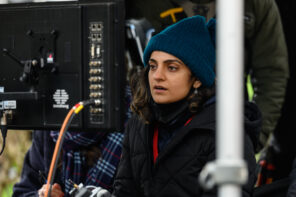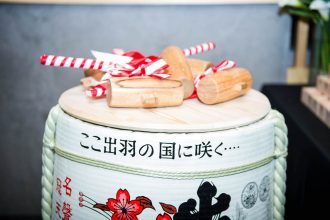
Pato – One LOVE
by Greg Barraza
“Tell me what must I say what more can I do
to get this message over to you.
Every man every woman boy and girl
it’s up to us to save this world.” – Pato Banton
pato banton | Facebook | Twitter
I sat down with Pato Banton, infamous reggae singer and knew it would be an interview like nothing I’ve done before. Born Patrick Murray, Pato Banton continues to be a true progressive with his music and his spirituality. As a youth, Patrick stayed up entertaining and was given the nickname Patoo, which comes from the Jamaican Patois and means “wise owl”; he received the nickname of “Banton”, which means “heavyweight DJ” from a DJ in Birmingham. By 16, Pato had already made a name for himself in Birmingham and would work regularly as an artist. By 19, Pato joined Crucial Music, a local reggae roots band; and his career took off from there. He began working with The Beat, an internationally successful ska band also from Birmingham. From there, his illustrious recording career exploded. His resume includes over sixteen albums, from 1985s Mad Professor to 2012s Words of Christ—a 7 CD box set. His success as a reggae artist speaks for itself: Baby Come Back hit #1 in the UK in 1994, and he has had multiple top 100 hits in the UK and US, including the much sampled and played Don’t Sniff Coke. If being a successful reggae artist was not enough, his album Life is a Miracle was nominated for a Grammy Award as Best Reggae Album. In addition to his successful reggae career, he appeared with reggae heavyweights like UB40 on the Baggariddim album, Paul Shaffer from the David Letterman Show, David Hinds from Steel Pulse, and Sting.
Other than being a reggae artist, Pato’s life reveals the person who makes the man. Pato was extremely involved in the community with his projects Muzik Links and the School of Musical Arts and Technology (SMAAT); both programs were designed to help at-risk youth who were involved in crime and gang activities. As a result of his commitment to the community, Pato was awarded with the BBC’s Lifetime Achievement Award and the Black Music Award for Lifetime Achievement. To further honor his commitment to music and community, Pato was inducted into the Reggae Hall of Fame alongside UB40 and Steel Pulse in 2002. Despite all the achievements, Pato “constantly searches for the truth.” That search for truth led him to the Urantia Book. That is not to say that Pato was not a spiritual person prior to the Urantia Book, but the Urantia Book changed his life because he feels he has found the truth he seeks within the book. His spirituality reveals itself with each answer. And Pato does not hold back from answering any question posed to him.
I mentioned to Pato before the interview that this will not be like any other interview. His music and tour can be discussed, but I came to interview him to find the man behind the music. I was going to ask him some serious and personal questions because I wanted his fans and non-fans to get a glimpse inside the mind and heart of a reggae legend.
[question]What is your mission with your music?[/question] [answer]My mission with my music is to uplift people, to reach people mainly across the USA, but ultimately all over the world. I use my music as a vehicle and to reach people and to uplift them with a positive message and a spiritual message.[/answer] [question]Since you are beginning your tour this week, what particular goal or message do you have when you begin your tour?[/question] [answer]I would say that there isn’t a specific message with a specific tour. But each tour unfolds differently; the theme of each tour seems to evolve as we are traveling. It’s not premeditated or rehearsed. The overall message is always that we are all God’s children—brothers and sisters. Based on each tour there is always something significant that is the foundation of the message and it changes as we tour too. It builds. Once we get our momentum going, there’s not many breaks in between. Throughout this nine month period when we end up in Australia the theme of the message we’ll be building; the vibe we’ll be building. So the message, the vibe, will probably evolve from something different from when we leave out this week. But it’s always positive, uplifting, and motivational.[/answer] [question]It has been said that you have no fear when you’re playing (he laughs). What does that mean when you have no fear when you’re playing?[/question]
[answer]I think no fear when you’re playing means that you have no hesitations. Nothing is in your way of expressing who you are at that time in your life. A lot of artists I know sometimes there’s that apprehension in how far should they go. You know, how far over the line or how far out of the box should they be. I guess I have this reputation of once I hit the stage I’m a different animal, you know, once it’s show time there’s no holds barred (laughs). I give it my all basically and the people know that.[/answer] [question]Can you expand on what I will consider a somewhat mythological idea where you do not even have a fear of dying on stage (he laughs)?[/question] [answer](Emphatic) Yeah! I think it would be an honor to die onstage, so, you know, in the past there were times when I used to be more politically minded, where people used to warn me to be careful about the things I said and where I said them. I been to South Africa; I been to Saudi Arabia; I been to Jerusalem, a lot of different places where you could get in trouble, but it doesn’t bother me. I am not afraid to die. I would rather die for something I believe in than be a coward, you know, and hide what I want to say. There have been situations where I have been on stage performing, and I feel like I’m having a heart attack. And it doesn’t make my show stop, you know. As far as I’m concerned what is going happen is going to happen, whether someone shoots me, stabs me, or I have a heart attack I’m giving 100% on stage. To me it’s a sort of a part of life. I have never been afraid to make a decision because of fear, you know. If I feel the intuition in me telling me to go for it; then, I will go for it. When I was in Israel, I was on house arrest and I broke out, you know. I have been in very scary situations in my life and fear is not a factor for me anymore.[/answer] [question]Calling you to set up this interview, we started starting talking just to set up this interview. Yet it was the subsequent phone calls that really captured me; I started to really enjoy the phone calls, not just the conversations we had. When we let go of each other, when we hung up the phone, you always say “one love” (Pato laughs) and I love that. Why do you end conversations with “one love”?[/question] [answer]I’m not sure. It’s not something that I am purposely doing. But now you come to mention it, I do realize I say it. I think I just want people to feel loved. I think that it is important whether it’s business or friendship or pleasure, it should still be love. It should always be “one love” you know, and for me it doesn’t matter if it is a Muslim, Hindu, Buddhist, Christian; there should still be “one love.” I feel that everyone is my family and I want people to know. Because some people call me and sometimes they are a bit hesitant; sometimes they’re a bit nervous to talk to me because I’m Pato Banton. But I want them to know that I am just a brother, and I want them to feel comfortable talking to me. I talk to my fans when I am onstage sometimes. I give all my fans my phone number; I got something like 40,000 fans on Facebook, and they all have my cell phone number, you know, and I tell them if you need me call me. I’m a brother. When I give my fans my number and myself—as a brother and a friend—then there is nothing for them to chase. I’m here for them when they need me, so for me “one love” is very important to let people know that we’re family; it’s about love, and that’s what I’m about. I want them to feel that so there aren’t any barriers or gray areas, you know, and if you feel that love then that is a good thing.[/answer] [question]It is awesome to feel that love because each time I hung up the phone, I just smiled. One of your motivations is that you want to play to all denominations, all religions; one of the things that separates Pato is that it doesn’t matter what one believes, what one follows. Can you tell me about how your lack of barriers influences what you do?[/question] [answer]Phew (I could tell this may have been a difficult question). I think if you’re gonna mediate a dispute, you can only do that on any level of quality and fairness if you’re unbiased, you know, if I had a religion, per se, or an institutionalized religion that I belonged to, then it would be very difficult for me to go to a Muslim or go to a Hindu or a Christian with an open mind and an open heart without having an agenda. Because I don’t have an agenda, it allows me to not judge anyone for their beliefs, but embrace everyone and to embrace the fact that they have a belief and to support them in that belief. To remind them that the fact they have a belief means they have a responsibility to live up to that belief. So my role in life, within and without my music, is to regenerate people, to re-motivate people, and to see people growing to their potential rather than a fixed position of where they actually are.[/answer] [question]Well said. Let’s go back to the idea of “no fear” because you are one of the only reggae artists to visit Tel Aviv, and I am fascinated that you were there because there was so much chaos in Israel while you were there, but what lingers in my mind is why did you go to Israel and what happened while you were there?[/question] [answer]I’ve been to Israel twice so far, Tel Aviv. The first time I went to Israel I went to visit a religious community called African Hebrew Israelites. I will be brief about that, even though it is a long story, I will be brief because it is not something I really want to discuss at length (I could see Pato getting a bit uncomfortable with this answer, but he went along anyway). They brought me under the pretense that it was a multi faith religious gathering. And when I got there, it was really a recruitment of new followers, and they had a problem that I was not one of their new recruits so that went wrong, horribly wrong. The second time I went there, I went there with Roberto Angotti. I was invited to do a tour. I went to some of the Kibbutz’s and different places. I went to a school and did a musical workshop with the children, and I had multi faith meetings with religious leaders—and of course the shows. We had prayer circles after the shows where we invited the Muslim and the Jewish brothers and sisters to hold hands after the show, which was very awesome and unusual for a lot of people. But it was great because there is normally two separate areas for prayer—Muslim and Jewish as well as male and female—so that was really beautiful, you know. I really enjoyed it a lot and I would love to go back.[/answer] [question]Roberto told me about the personal bombings when you guys were at the restaurant; can you expand?[/question] [answer]Yeah; yeah. It was during that time when there was a lot of personal bombings going on so there was a lot of scares while we were there. A lot of people told me not to go, but I told them that nothing is stopping me from going. I don’t care if it a war zone, I’m going. That’s when people need you the most. If you got some positive vibes to bring, those are the people who appreciate it the most.[/answer] [question]We have been discussing ideas of spirituality and multi faith beliefs, and those who follow you know this pretty well, but I want to ask this question for the people with limited experience with your life and music to get to know Pato Banton. So what drew you to the book of Urantia?[/question] [answer]Phew (now I am thinking that is the second time I made his eyes widen and made him pause). Well I can say is that I went in search of truth. And I am very open minded when it comes to truth and very sincere when it comes to truth. So I did a 15 year search while touring and making music. I did a 15 year search, and after 15 years I got frustrated. I studied the world’s religions. I studied Christianity in depth, and I nearly joined every religion on the planet because while I was studying them, I got close to joining them. But before my studies were concluded, I realized there was none of them I could join. So I basically went to the source. I went to God and I really sincerely prayed to God and I asked God—I had no idea that the Urantia Book existed—but I went to God and I says, “You know something Father, I really want to know, you know, I really want to know the truth.” I didn’t want a human truth; I wanted a divine truth. I just went to God and prayed about it, and shortly thereafter I came to LA (Los Angeles) and saw a friend of mine who had an Urantia Book. He showed me the book and I was blown away, you know, as soon as I opened the book. Because I had about 20 questions I asked every religion and none of them could satisfy those question. When I opened the Urantia Book the first time, two of my questions were answered just in the index; and when I started reading the book, every single one of my questions was answered. And then it gave me more questions; questions that are definitely beyond this lifetime. So what led me to the Urantia Book, really, was my quest for truth, my unbiased, unquenchable search for truth that couldn’t be satisfied by cultural tendencies or peer pressure, you know, and I have been reading the book now for 20 years and I am still fascinated.
[/answer] [question]And are you still finding questions?[/question] [answer]Yes. I am still fascinated and I am still finding more questions.[/answer] [question]I have seen you perform several times, and you always take time in your set to let the audience know your spirituality. Do you ever have any fear that you would alienate yourself and/or your audience because of your spirituality?[/question] [answer]Well I guess myself and my audience is the same thing really. No. I never had any fear; it never even was a thought because to me (long pause. I could tell he was giving long thought) let’s put it this way. My family says I’m generous to a fault, and they say I’m too generous. But to me, if I have what I need in my home and I get a bag of money, I look around me and say to myself there’s nothing I need. I have everything I need, but I know my brother needs something; I know my sister needs something; I know my mom needs a bit of help. So the minute I get something my first desire is to share it. Knowledge is the same thing. If I find knowledge, then, the ultimate goal for me is to share it. My only desire when I find the truth is to give it and share it. I am not trying to convert anybody to believe what I believe, just like I would never force money into anybody’s hand who did not want it. But if I found something that has liberated me, has helped me, has excited me; then, the greatest thing that I can do as far as I’m concerned is to share that with other people regardless of the cost. My fans have seen me evolve from 1987 until now and I have never been a Rasta or a Christian or a Buddha or a Hindu; I have only been Pato Banton with a positive spiritual message. I take the truth I find in every book and I share it so the only thing I can really say as far as being alienated or alienating people that comes with anything because you can never please all the people all the time. If I chose to be a hip hop artist I would alienate a big cross section of music lovers. Being a reggae artist is the biggest alienation because the reggae industry has the least amount of followers anyway, so just identifying myself with reggae was a big step as far as alienating myself, but that was natural to me so the cost didn’t matter to me.[/answer] [question]Do you experience any resentment from the Rasta community because you are so open-minded about everything?[/question] [answer](animate) Yes! Because the thing is if you embrace a religion every religion tells you that their religion is the only way. I nearly joined about six different denominations of Christianity and every one I studied with told me that unless I was saved by their church I was going to hell. The other day I went on my street up the road and there was some Jehovah Witnesses going door to door on the left hand side of the road, and there were some Spanish Catholics going door to door on the right hand side of the road. So I went to the Catholics and asked them what they were doing, and they told me they were going door to door. And I asked them about the Jehovah witnesses across the road, and they said to me that unless they are saved in the Catholic Church they are going to hell. And I went across the road to the Jehovah Witnesses and they told me that unless the Catholics were saved, they would be destroyed you have to be saved with the Jehovah Witness’. So like I said, I have studied religions and I know what to expect from religions. The first religion I was involved in was Rasta, and if you don’t believe what they believe; then, you are basically an outcast. So I’m not new to being an outcast, you know, I grew up in a Rasta community as a kid and I couldn’t become one of them because I couldn’t believe what they believed. And for me, if I come close to a religion and I believe 90% of it and only 10% of it is wrong, I can’t join it; and even if I believe 99% of it and one percent of it rubs me the wrong way, I can’t join it. So I’m doomed as far as the religions of the world are concerned. But when I look at people who have stepped outside of the box like Gandhi, Malcolm X, Martin Luther King, Jr. and all of these people who were on the frontline of change they were always despised and nearly all of them were killed because they were despised so much because of their stance for change. So not that I want to be killed or that I think I am in their standing but I do know that based on those examples, that if you do go along with the flow of what’s considered to be normal or normality then you will be resented. But that being said, there are Rastas and Christians and Buddhists who are open minded and who get the bigger picture—that we are all God’s children; we are all brothers and sisters and when I find them it is a beautiful thing, you know?[/answer] [question]You are an ordained minister. Why did you decide to take on the endeavor of becoming an ordained minister in addition to your already busy schedule?[/question] [answer]The purpose of becoming an ordained minister was the fact that because I have belief that (once again he pauses to give thought to the answer)…let’s take The Bible for instance; if you look at The Bible, you will see that the priests and the rabbis and the scribes were the ones that wrote The Bible were the one responsible for maintaining The Bible intact. They were the ones that held the high positions in the religion and preached to the people, but the people who really changed the religion were the prophets. So I believe that your true ordination as far as your true relationship with God is a personal thing. It’s done very quietly and discreetly and normally grows quite naturally because of your desire to be close to God. My reason for becoming a publicly ordained minister…and I want to go back and say that as an artist talking about God and spreading the good news, people were already treating me like a minster when my only desire was to become an artist. But because of my message and because of the way I lived my life people treated me religiously. So much so that people started to bring their children to me to bless their children; people in wheel chairs came to me to heal them; people have asked me marry them, christen them, and baptize them. When people started to ask me to legally marry them, I had a problem because I wasn’t certified to legally marry my fans, so that’s what pushed me over the edge to say ok I’m going to become ordained, so I can provide the services legally that my fans want me to perform for them. So that they don’t get issues with the government so that they don’t get criticized for having this reggae guy perform their baptism or their christening or their wedding. So I got an ordination with the universal ministries, which allows me to perform those services for the people that want me to.[/answer]
[question]How many weddings do you think you’ve done?[/question] [answer]About 40-50 weddings now.[/answer] [question]Christenings?[/question] [answer]About 10-15.[/answer] [question]Baptisms?[/question] [answer]I can’t count how many I’ve done so many. I remember one guy drove 700 miles for me to baptize him. He followed us for two days and on the third day asked me to baptize him. I took him to the hot springs to baptize him, and after I baptized him, five other people asked to be baptized right there and then, and these were people that did not know we were going there to do a baptism; they were just there and saw what was happening and wanted to be baptized. It was very, very cool; it has been a great journey as far as taking on that role. And right now I also have a Facebook forum where I have 78 ordained ministers training under me or beside me and 70 of them got ordained when I invited them to be ordained. Its growing (laughs).[/answer] [question]Now let’s talk about Antoinette, so tell me the story of you and Antoinette.[/question] [answer]Well basically, she tells it better than I do and she tells it a lot more than I do. Antoinette told me that we met for the first time 25 years ago in New York when I was on tour, and she said usually when she met musicians and artists, they normally hit on her. She says all I wanted to talk about was books; she says I was traveling with a library. She was fascinated because that is all she wanted to talk about, so we had this awesome conversation about African history and about books related to that. Then we parted company, and we never saw each other again for about 10 or 15 years. The next time we saw each other we had another conversation but this time it was about spirituality and we both started talking about the spiritual books that we were reading and then we didn’t see each other again until 4 years ago in L.A. when I was at a crossroads with my band Mystic Roots, and Antoinette was at a crossroads with playing with Eek a Mouse, and she was looking for a new gig, and I was looking for a new band. She said she would be more than happy to get some L.A. musicians together and help me form a new band. So we exchanged numbers and put the band together and started touring. And we toured together for a year as just total friends. She’ll tell you that I never once hit on her for the whole year. I was very respectful for her and she was very respectful to me. She was kinda like the party girl I watched her for a year. She watched me being a recluse and I watched her being a party girl, you know; the drinking, the smoking, the staying out late; and she wasn’t interested in my message, what I was doing. She was just interested in the gig. She was playing for money and it wasn’t until the fans starting asking her questions about what’s all this stuff Pato is talking about. She came to me one day and said to me all the fans keep asking me all these questions what is this book that you’re reading. This is after ten months of being on the road and that goes show you that I didn’t try to push the book on anybody in my band. Then, she started reading the book and within a very short period of time she had a major transformation. Then, we became partners it seemed like a very natural thing to do; we had so much in common, so we became partners. She is now a bigger advocate of the book than I am. For me, I like to share the truths that I find in the book I think she likes to share the book.[/answer] [question]It is clear that you keep yourself extremely busy. When I came in today, you were online with your social media. I was talking with Roberto the other day, and I asked Roberto: when does he ever sleep (laughs)? So the question is: when do you sleep?[/question] [answer]I got three hours sleep last night because I have the fan page on Facebook, I have my Pato Banton personal page on Facebook which has 5000 people. I’ve got Minister Pato Banton, where I got my congregation on Facebook; that’s 2000 people and what I believe is if you are learning something you are a teacher because the minute you learn it, you can share it. If you only know one truth; if you share that one truth you are a teacher. Plus, we have the website. Plus, we have our own booking agency—Gwarn International is my own booking agency. Gwarn International is my own management company; I manage myself, and me and Antoinette work together throughout the day sometimes throughout the night, so we are really, really, really, really busy. Plus, we do Skype sessions every Sunday two sessions a week every Sunday, so we are teaching online and that’s global. Plus, I do counseling right where you are sitting I’ve done many, many, many counseling sessions; people come here from all over California. They come and sit down and I counsel them –marriage counseling, personal coaching. I just recently had a whole family come here. So sleep is a rare commodity sometimes, but when I am really exhausted I will just shut down and get a good 10 hours 12 hours sleep. On average, I survive on about 5 hours a day.[/answer] [question]Talk a little bit about the upcoming music merchandise website: thestylecouncil.com, where you are the featured artist.[/question] [answer]Well thestylecouncil.com is a merchandise production company. They specialize in t-shirts, in clothing, and hats and anything related to merch, you know, they can do bags—everything. That is one area that we never really specialized in. We use different merchandise people. It was always like what can we do here, what can we do there and we never had an online presence for our merch because it is so difficult sometimes because of all the sizes and choosing which design to stick with and then there’s the “stuck.” What thestylecouncil.com provides for us is an online presence with an online merchandise catalog system that we can create any design that comes in our head. They can draw up the artwork and put in online and never have to print one shirt unless somebody wants a shirt. So there’s no stuck issues. What it also does is it allows us to have an online catalog of all of our designs, so if somebody liked a design from two years ago it can be pulled up, you know. Also, while we are on road, we now have a company that can ship us any of the designs that the people are asking for to any location that we are at. So if, for instance, we are on the East Coast and we just ran out of the medium size of the “Legalize It” shirt, we can say, “We need 20 medium size”—just that one size—“can you send it to us.” And then, we can keep track of our inventory, and we can look at thestylecouncil.com database to see what style sold the most and/or what styles sold the most. That will make us more prepared for future tours to know what to stock up on when we are leaving. Plus, we can take a catalog that we can take on the road, so when people come to the table, they can order something through the catalog. It creates a really professional situation for us, so we can provide a broad section of merchandise for the fans.[/answer] [question]And you are the first musicians that thestylecouncil.com is using to launch this concept? Is this true?[/question] [answer]Yes. Yes. It is very true and all of our designs [past and present] will be available. We will reissue them and take some on the road as well.[/answer]
[ATOD Magazine Editor, Dawn Garcia: Thank you to my incredible Columnist, Greg Barraza for this in-depth and truly enlightening interview with one of my favorite reggae artists, Pato Banton. The world cannot survive without love and the message he sends to anyone willing to listen is one of precisely that. Pato – you are magnificent and the music, the message, the devotion – well, as a fan, I am incredibly grateful.]
Pato will be touring through December. Check out his tour dates at patobanton.com or you can Facebook him at facebook.com/patobanton. His merchandise will be available shortly through thestylecouncil.com.
You can purchase Pato Banton’s Music here:



